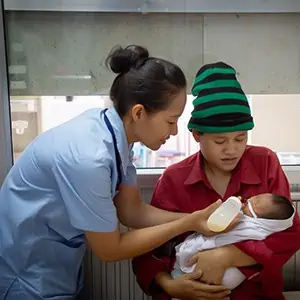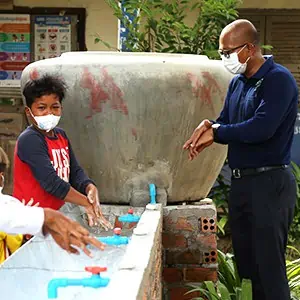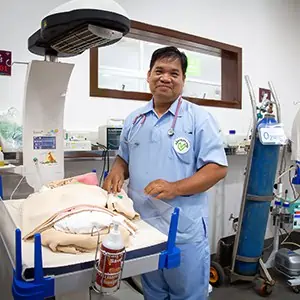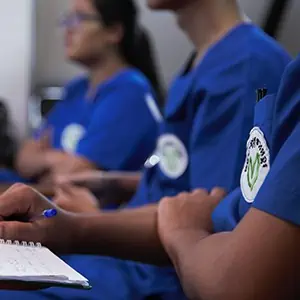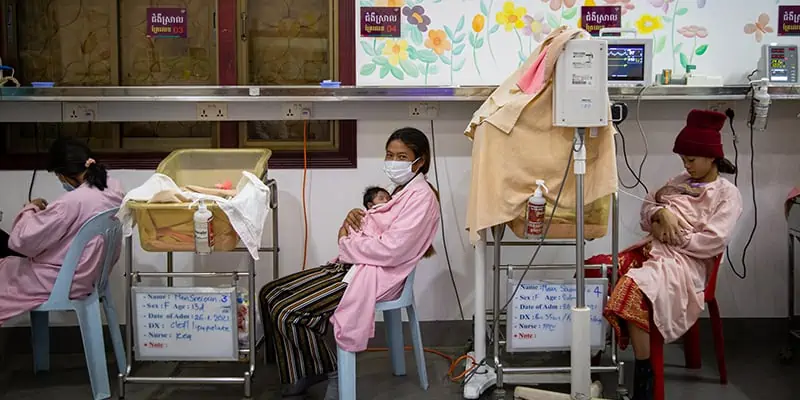The AHC neonatal model sets the standard of newborn care in Cambodia, supporting the development and implementation of neonatal care throughout the Cambodian health system, challenging the notion that quality neonatal care is expensive, complicated and unattainable in a low-resource setting.
Since the establishment of AHC’s neonatal intensive care unit (NICU), AHC has helped build consensus and formulate recommendations in the development of the National Neonatal Guidelines. First developed in 2012, the guidelines aim to reduce neonatal mortality by addressing diagnosis and appropriate management of neonatal patients throughout all healthcare facilities in Cambodia.
Building from the National Neonatal Guidelines, AHC has adapted its proven neonatal model to inform and develop the Saving Babies Lives (SBL) programme. The SBL programme is furthering AHC’s neonatal expertise by developing a blueprint for sustainable community-based healthcare aimed at decreasing neonatal mortality in low-resource settings.
Despite the challenges of the COVID-19 pandemic, AHC has maintained the level of specialty neonatal care at the hospital in Siem Reap, while the SBL team continue to build the capacity of the health system in neighbouring Preah Vihear province. The AHC NICU and SBL teams work together, following a clear progression of care, in order to provide treatment for Cambodia’s most vulnerable neonates.
In early 2020, as the coronavirus was beginning to spread worldwide, two seriously ill twin boys were born prematurely at the Preah Vihear Provincial Referral Hospital (PVRH). After receiving treatment at the PVRH, the twins needed emergency transfer to Angkor Hospital for Children (AHC) for specialised neonatal treatment, as their condition continued to deteriorate.
Phuong Lor and Phuong Leap were born eight weeks premature; both severely under-weight, and suffering from premature complications; including apnea, sepsis and jaundice. Their mother had travelled from their small rural village to give birth at the PVRH, over two hours’ drive away. Immediately after the birth, the twins were taken to the hospital’s newly established Neonatal Care Unit (NCU) for treatment.
Nearing its third year of operation, the NCU was first developed as part of the AHC’s Saving Babies Lives (SBL) programme and is the first of its kind in the province. Here the twins received the full suite of neonatal care available at the unit. The two newborns received CPAP treatment for their apnea, phototherapy treatment for their jaundice, and were placed in baby warmers to keep their fragile conditions stable, all of which was previously unavailable to neonates in the hospital and wider province. In addition, IV antibiotics were delivered to treat their neonatal sepsis infections and nasogastric feeding tubes were inserted.
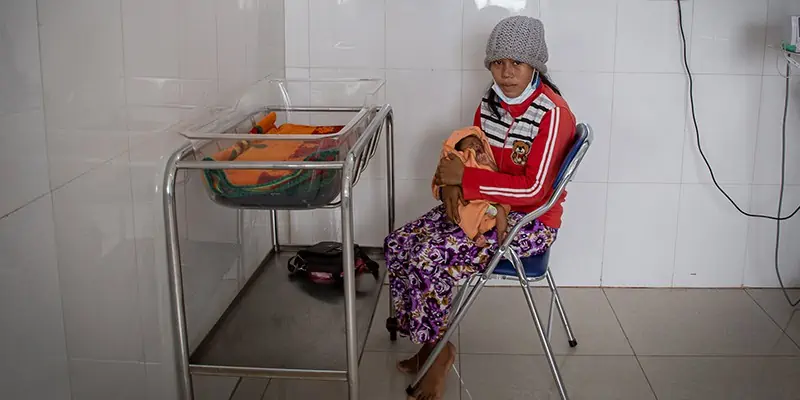
Launched in 2018, the SBL programme has trained government health workers from 29 health centres, 17 health posts and 2 referral hospitals, while mobilising over 500 Village Health Support Group workers (VHSGs) across the rural villages of Preah Vihear province.
After one week of treatment at the NCU, both twins were still in a serious condition and not showing improvement from the treatment they were receiving, Phuong Lor’s condition was especially concerning to the NCU team. Following consultation between the Preah Vihear hospital staff and SBL team, it was decided that both twins would be transferred to the AHC Neonatal Intensive Care Unit (NICU) for specialised neonatal care.
Dr Kaajal Patel, SBL Programme Lead, explained the different levels of neonatal care available in Cambodia, describing the realities of living in the remote Preah Vihear province.
“The neonatal care at the Preah Vihear Referral Hospital has made huge improvements in the last three years, but unfortunately a ceiling of care still exists here. The hospital does not have surgery facilities, no intubation, no second-line antibiotics, and no microbiology lab. So when a seriously ill newborn reaches that ceiling of care, there needs to be a clear care progression in place to treat them, and that’s where AHC comes in as that next level of care.”
Dr Kaajal Patel, SBL Programme Lead
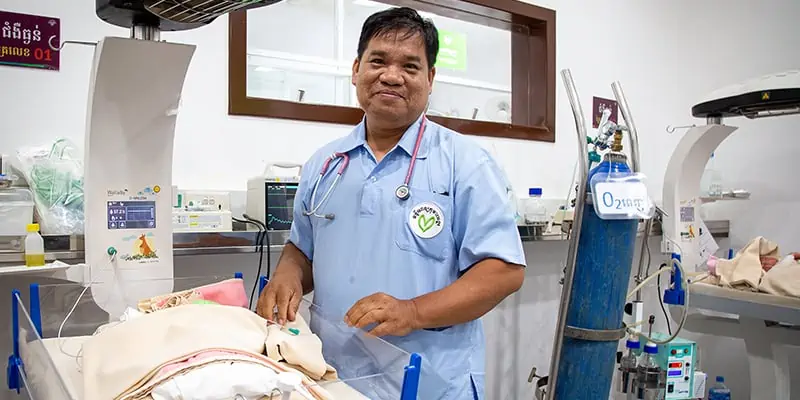
Beyond Cambodia, AHC is using learnings from SBL to contribute to the global dialogue on neonatal mortality. At the Royal Collage of Paediatrics and Child Health Conference in Liverpool, staff presented research conducted on SBL programme design and assessment tool creation, which can be used as a blueprint to develop similar programmes in other low-resource settings. While the Baby Resuscitation Training system (BaRT) has begun to train health workers how to correctly resuscitate a neonate.
“It is the years of commitment to specialised neonatal treatment in our hospital, treating Cambodia’s most seriously ill newborn’s, which has enabled us to influence neonatal care nationwide, and to impart our learnings onto other settings around the world.”
Claudia Turner, Chief Operating Officer, AHC
The twin baby boys required 15 days of around-the-clock NICU treatment before their condition improved enough to be moved to the Special Care Baby Unit (SCBU) to continue their recovery. It was not until this point in treatment that the twin’s mother could begin breastfeeding her sons. For the previous 15 days, she had been receiving breastfeeding counselling from AHCs nutrition nurses, who meet with newborn mothers regularly to teach breastfeeding skills. Along with breastfeeding counselling, the twin’s mother also attended daily IPC education to help prevent the spread of infection within the hospital.
After a further 17 days, both twins were ready to be discharged from AHC and return home to Preah Vihear with their mother. Including their seven days at the PVRH, the two had spent 39 days total in hospital care.
As the pandemic diverts attention and resources away from long-standing paediatric health issues, the AHC neonatal unit and SBL team are prioritising providing lifesaving care to serve as a model for making sure every neonate receives the specialty care they need.
